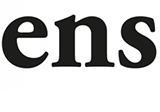Introduction
The European New School of Digital Studies (ENS) is an interdisciplinary teaching and research institution located on the border of Szczecin, Poland and Frankfurt (Oder), Germany, focusing on education and research in digital-related fields.
Overview
Student Composition: It attracts students from different cultural and academic backgrounds from all over the world, forming a diverse and vibrant international student community.
Course Setting: Currently, it mainly offers courses such as Master of Digital Entrepreneurship and Master of Digital Society. All courses are taught in English, which provides convenience for international students.
History and Establishment Time
ENS was established in 2020 In 2005, it was jointly founded by the European Viadriana University in Germany and the Adam Mickiewicz University in Poland. It aims to combine expertise in different fields such as economics, law, social sciences and computer technology science to meet the challenges brought by digital transformation.
School Strength
Faculty: It has excellent teachers and experts from partner institutions and other related fields. They have rich teaching experience and expertise and can provide students with high-quality teaching and guidance.
Teaching model: It adopts innovative teaching methods, based on projects, and emphasizes close cooperation between students and academic staff in teaching, team projects and daily work. Through small courses and dedicated co-working spaces, students can fully develop and promote their own projects, cultivate practical skills and innovative thinking.
Scientific research cooperation: Actively carry out interdisciplinary research and cooperate with various academic institutions, research centers and industry partners to jointly promote the development of digital research. The cooperation involves multiple research directions such as digital governance, data ethics, cybersecurity, and the impact of digital technology on society.
Institutional nature
ENS is a public, interdisciplinary teaching and research institution.
Educational philosophy
ENS believes that digital transformation is a cross-society process that challenges established political legitimacy standards, subverts traditional economic thinking, and completely changes ethical and social concepts. In order to meet the challenges of Europe's digital society, ENS combines academic insights with the expertise of private institutions, public institutions and non-governmental organizations, focuses on cultivating students' ability to understand and solve digital social problems from an interdisciplinary perspective, and is committed to cultivating professionals with innovative spirit and practical ability for Europe's digital transformation.
Key laboratories and disciplines
Key disciplines: Digital entrepreneurship and digital society are its key subject areas. The Digital Entrepreneurship major focuses on cultivating students' ability to create and manage digital enterprises, covering courses such as digital business models, innovation management, and entrepreneurship; the Digital Society major focuses on exploring the impact of digital transformation on society, including courses in digital ethics, governance, and policy making.
Key laboratories: No clear key laboratories were found in the school, but the school is equipped with modern teaching facilities and advanced technical infrastructure, such as library resources, online learning platforms, digital research tools, and computer laboratories, to support students' learning and research activities.
Department
No clear division of departments was found in the school, but from the perspective of its professional settings and subject focus, it mainly conducts teaching and research in related fields such as digital entrepreneurship and digital society, which can be roughly classified into the Department of Digital Economy and Management, the Department of Digital Society and Humanities, etc., to meet the professional learning needs of different students.
Ranking
ENS is ranked high in internationally renowned university rankings such as the Times Higher Education Rankings, the Academic Ranking of World Universities (ARWU), the QS World University Rankings, and the Humboldt Rankings, DFG in Germany. No clear ranking information was found in the rankings, etc.
Expenses
Tuition fees: The school's Master of Digital Entrepreneurship program is free for both EU and non-EU citizens.
Living expenses: As the school is located on the border between Szczecin, Poland and Frankfurt (Oder), Germany, the living expenses are relatively moderate. The monthly living expenses of students include basic expenses such as accommodation, food, and transportation, which are about 600-800 euros.
Campus
Campus location: The campus is located in the Collegium Polonicum in Szczecin, the Polish part of the twin cities of Szczecin, Poland and Frankfurt (Oder), Germany. The area is close to Berlin and provides students with the opportunity to be exposed to a vibrant cultural and academic environment.
Teaching facilities: The school has modern campus facilities, including classrooms equipped with advanced technology equipment, computer laboratories, co-working spaces, etc., providing students with a good learning and research environment. In addition, the school also provides a wealth of library resources, including digital databases and journals, as well as online learning platforms and digital research tools to meet students' learning and scientific research needs.
Living facilities: The living facilities around the school are relatively convenient, and students can easily find accommodation, dining, shopping and other places. The school also provides students with accommodation assistance and other services to help them better integrate into local life.
-

Heidelberg University
-

University of Freiburg
-

University of Jena
-

University of Marburg
-

University of Rostock
-

University of Halle-Wittenberg
-

University of Bayreuth
-

Leipzig University
-

University of Tübingen
-

Humboldt University of Berlin
-

Mesoamerican University
-

Istmo University
-

Mariano Galvez University of Guatemala
-

Regional University of Guatemala
-

Galileo University
-

Francisco Marroquín University
-

Rafael Landívar University
-

University of the Valley of Guatemala
-

University of San Carlos of Guatemala
-

Technological Institute of Tlaxcala Plateau
-

Golfo University
-

Technological University of South Sonora
-

Technological University of Huejotzingo
-

Tizimín Institute of Technology
-

Chilpancingo Institute of Technology

